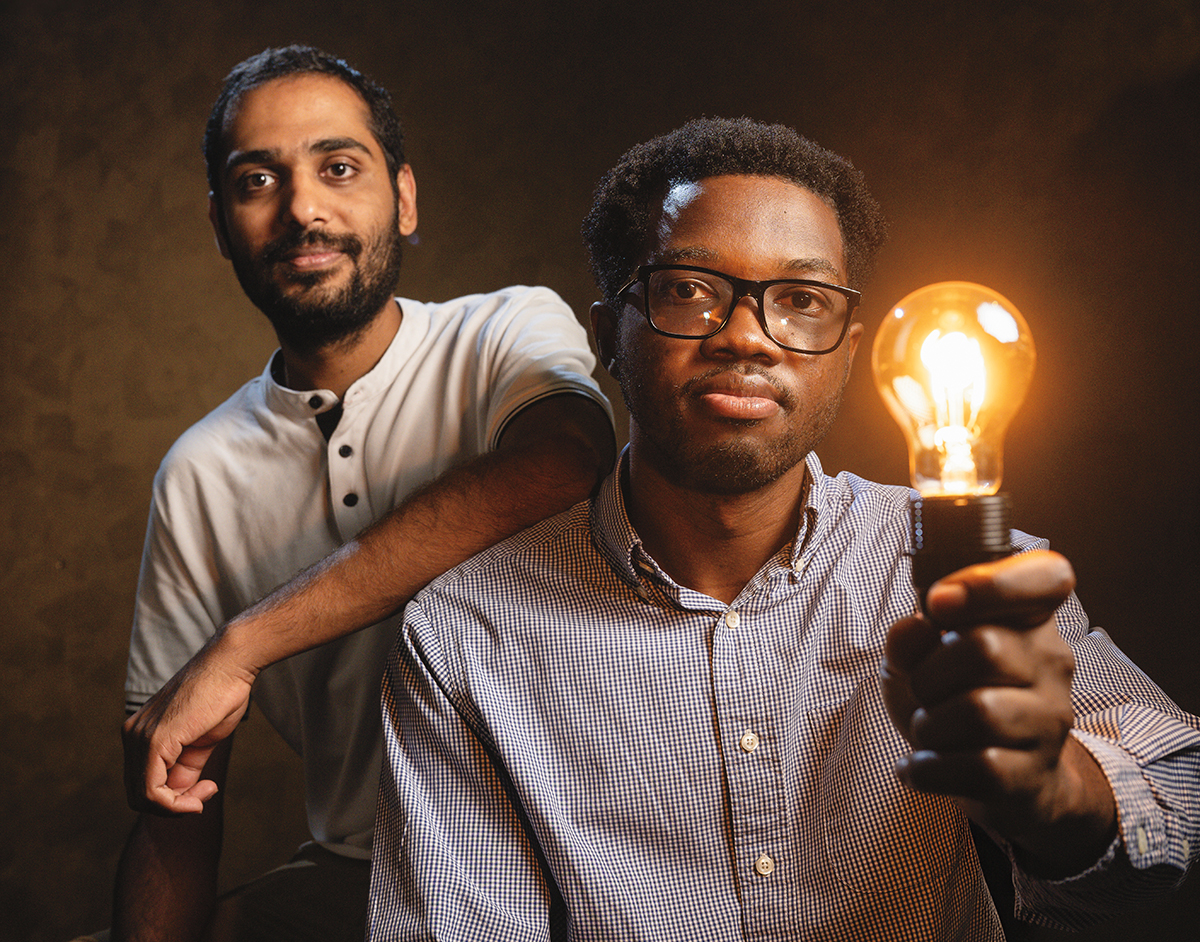Illuminating Innovation
Illuminating Innovation
Institute for Innovation Science uncovers methods, mindsets and behaviors behind innovative activity
Formally established in 2022, the Institute for Innovation Science studies the methods, mindsets and behaviors of innovative organizations and individuals to advance the success rate of innovative activity. The institute defines innovation as the strategic pursuit of novel ideas that impact society.
“We study both high impact innovators, those who have introduced widely adopted products or solutions into the world, as well as high impact organizations that repeatedly change the way society operates,” said Joe Sinfield, professor of civil engineering and director of the institute. “Innovations such as the laser, the transistor, the concept of insurance and the notion of microfinancing have introduced significant societal change through their development and are indicative of our focus.”
The institute’s educational arm supports an undergraduate minor in innovation and transformational change and offers core coursework in the strategic innovation concentration of the professional masters in engineering management as well as the interdisciplinary graduate concentration in transformational innovation and design. Students in the doctoral program complete their theses using a cross-disciplinary approach that examines innovation science from a systems lens, drawing from concepts in anthropology, social sciences, economics, business, industrial design and engineering, among others.
The types of problems addressed by the institute are wicked problems, meaning they are difficult or seemingly impossible to solve due to their complex, interconnected and often contradictory nature. These problems lack clear definitions, have no single right or wrong solution and often involve numerous stakeholders with conflicting interests and values.
“The process will never be perfect,” Sinfield said. “But we can dramatically increase the success rate, and as a result, improve the efficiency of all resources deployed for innovation.”

Here’s a glimpse at some of the student-led projects emerging from the Institute for Innovation Science.
Could a new approach to creating affordable manufactured housing at scale alleviate the housing crisis?
Abhi Ajmani (BSME ’19, MSCE ’21) collaborated with a cross-disciplinary team of professors and industry professionals on an National Science Foundation proposal aimed at transforming the housing construction industry to address the housing affordability crisis. Through factory-built, mass-produced housing, they aim to significantly reduce construction costs, accelerate timelines and increase access to affordable homes. The work links to Ajmani’s PhD research which is focused on means to develop innovation ecosystems and agglomerate related capabilities to spur the economy.
When faced with largescale societal problems, how do you determine which resources to prioritize?
Romika Kotian (MSCE ’18) led the development of a new complex problem framing approach termed Comprehensive Success Factor Analysis, which yields insight into hundreds of factors that shape the potential to address society’s most vexing problems. Her work has been applied in multiple countries as part of a deep collaboration with USAID and has spanned challenges ranging from maternal and child health to food security of a nation to water rights management and migration crises.
How can the agri-food sector harness digital technologies to improve access to resources while enhancing system efficiencies?
Waire Olawolu (MSCE ’22) partnered with Purdue’s Digital Innovation in Agriculture Lab (DIAL) to develop a risk-mitigated strategy to improve agriculture and food systems across the Americas. The digital transformation of agri-food has vast consequences from supply and resource management to matching produce, livestock and fiber materials generated for textiles with market opportunities. Driven by an overall assessment of high impact innovation, Olawolu’s research helped DIAL understand how to leverage startups to implement large scale system change.
Can understanding the journey from inspiration to impact help design ecosystems to facilitate innovation?
Akash Patil (MSME ’18) is using natural language processing to analyze hundreds of episodes of the popular NPR podcast How I Built This, hosted by Guy Raz, to identify patterns in innovation journeys. By dissecting the innovation process into smaller components of resources, actors and innovator activities to understand the cause-effect relationships among these variables, Patil can shape an environment that fosters specific forms of innovative activity.
Is it possible to use AI to design sustainable industrial facilities for any location around the world?
In partnership with Google, Jenna Palka (BSCE ’21) is leveraging AI to facilitate the design of sustainable data centers around the globe. Certain materials and construction processes available in one area may not be available in another, leading to a reevaluation of the process in each new location. AI-augmented approaches to design are making it possible to achieve a more holistic, context-aware assessment that takes environmental, social, financial and other variables into consideration.
